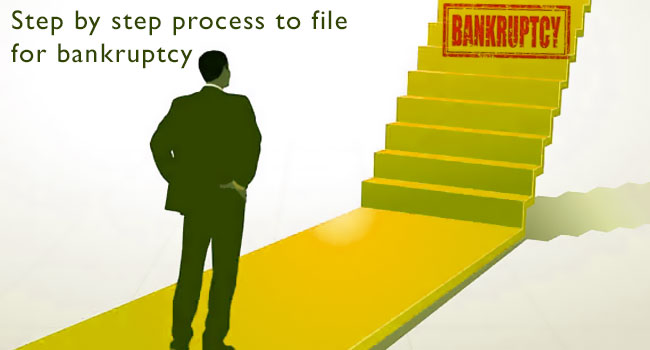When confronted with huge debts, debtors have a lot of serious financial decisions to make. Deciding to file bankruptcy is the hardest, and should be your last resort when trying to get out of debt. If you’re thinking of filing for bankruptcy, here are some steps you should follow:
Step 1: Check your financial status and consider bankruptcy only when all other options fail to help settle your debt. Bankruptcy will remain on your credit report for 7-10 years.
Step 2: Talk with an experienced bankruptcy attorney. You can file bankruptcy on your own, but an attorney can help you with all the legal complexities.
Step 3: After deciding to file for bankruptcy, you should decide whether to fil e Chapter 7 or Chapter 13 bankruptcy. Which one is better for you depends on you circumstances, and is something a bankruptcy attorney can help you with.
Step 4: After you file for bankruptcy, the court will assign a trustee to manage all of the debts you want to get rid of. It is important that when you file, you disclose all of your assets.
Step 5: Notify your creditors that you have filed for bankruptcy.
If your bankruptcy petition is accepted then you will be barred from filing another bankruptcy for 8 years.
Filing for bankruptcy is a time-consuming process that demands lot of time and effort. Even when you’re deep in debt, an experienced bankruptcy attorney can be exactly what you need!
Bankruptcy Positives:
When you file for bankruptcy the court places an instant order barring your creditors from attempting to collect on your debts called an Automatic Stay.
Bankruptcy will also eliminate all your unsecured consumer debts. If you file for Chapter 13, your home, car, and other property will not be sold to pay your debts.
In addition, you cannot be fired from your job, or discriminated against because you have filed for bankruptcy.
Bankruptcy Negatives:
Bankruptcy stays on your credit report for 7-10 years depending on which chapter you’ve filed under.
If you file for Chapter 7 bankruptcy, the bankruptcy trustee will be able to get a hold of your non-exempt assets and sell them to pay as many of your debts as possible.









